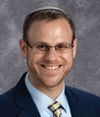3 Post-Election Thoughts
Post-Election Thought #1
There is certainly a place for polling and surveys. Still, this election has exposed the limitations of Big Data. We live in an era in which we like to tell ourselves that we have devised oracles that can predict the future. But the present cycle has demonstrated the limits of statistics. As it turns out, whether the subject is hurricane forecasting or election polling, we’re not all that good at prognostication.
It also appears plausible that there were hundreds of thousands of Americans planning to vote for Trump who chose not to say so to pollsters. By and large, the pollsters had no way to verify or account for this trend. As we say on Rosh Hashana and Yom Kippur, only God knows the innermost thoughts of humankind.
Judaism teaches that there are matters of the heart that cannot and ought not be easily quantified. As Rav Soloveitchik wrote, it is from a place of humble embrace of our human limitations and even failures, and a deep appreciation of the qualitative, immeasurable elements of the human experience, that man is meant to encounter the divine. This election reminds us of those eternal truths.
Post-Election Thought #2
Many have commented that America is apparently even more divided than we had previously thought. I think that’s true, but perhaps in different ways than we generally tend to assume. We often act as if the largest divides in our society break along the lines of areas such as race and gender. As it turns out, this election turned on the gap between urban “elites” and rural America, with all the associated cultural and socioeconomic differences. While race plays a role in this divide, the urban/rural distinction seems more useful and more accurate. The chasm is real and yet we typically hear about it only around the elections.
There are a few obvious reasons for our lack of attention to this divide. First, it’s human nature to focus on differences that are immediately evident. Race and gender distinctions, as a general matter, can be seen right away. Second, racial and gender divides have a long, complex and well-publicized history in America. Third, in many urban and suburban communities, there are regular interactions between people of different ethnic backgrounds and skin colors. Men and women in the West interact constantly. But how often do the average rural and urban Americans communicate? My home state of Pennsylvania is unfortunately an excellent example of this tale of two Americas. To paraphrase a comment Rav Shach once made about his relationship with Rav Amital, members of different racial communities might have vociferous disagreements with one another, but rural and urban Americans don't even have the opportunity to talk.
If yesterday’s election is any indication, this may in fact be the greatest divide in our country today. If we want to restore trust, we would do well to think about ways to create opportunities for rural and urban America to build bridges and work more closely to craft a joint vision for our future.
Post-Election Thought #3
The last three presidential elections have gone to candidates that led not just campaigns but movements. Of course, those of Obama and Trump were radically different in nature, and so many Americans were fiercely opposed to the former and outright disgusted by the latter. But the common denominator is that they both rallied a generation of Americans around a sweeping vision that spoke to millions of people’s deepest aspirations and anxieties. Their competitors in the general election, John McCain, Mitt Romney and Hillary Clinton, led campaigns that failed to coalesce around a big idea and never rose to the level of a movement.
There is a profound lesson in leadership here that touches on a fundamental challenge confronting the American Modern Orthodox community. The recent victorious campaigns remind us that to reinvigorate our community, we might start by working toward a Modern Orthodoxy that is sweeping in its vision and inspires wide swaths of our present community and even beyond. Our future success could hinge on our ability to craft a popular, authentic Modern Orthodoxy that represents not just a lifestyle but a movement.
